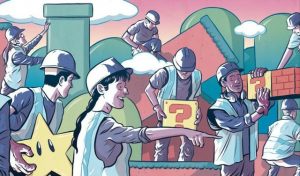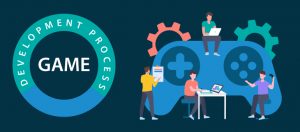
Tips to Get Started in Game Development
There are many tips that will help you get started in game development. The first step is to create a rough prototype of your game. You can then work on the details of it until you feel comfortable with the final product. Eventually, you can move on to larger projects. For now, just concentrate on creating a few short-term goals and then work your way up. You will be glad you did once you have your first game ready to show off.
To get started in game development, it is important to start with a concept. A concept is the first step in this process. From there, you’ll need to create a Game Design Document (GDD) – a comprehensive guide on how to create your game. A good game design document will explain every step from the idea to the final product. You will also need to create 3D models for your game. These can include characters, objects, vehicles, weapons, and structures.
Once you’ve got your concept, you’ll need to find a game designer and a developer. Choosing the right developer can be difficult, but there are some things that you should look for when looking for a developer. A game designer will have a good idea about what kind of game they want to create. A game developer will also have the advantage of knowing someone who can help you with your project. It’s important to work with someone who you can get along with and who can communicate well with your team members.
A game designer should have a good idea of what the game will be like. Once the designer has an idea, they should make a Game Design Document (GDD), which is essentially a how-to-create manual for the creation of the new game. If the game designer can’t come up with a great design, they can still work on the game design. A developer can also create 3D models of characters, objects, vehicles, weapons, and structures.
In addition to a game design document, a developer should also choose a game that is easy to understand. A beginner should start with Tetris, which is a popular choice. It introduces the basics of Game Development, such as the Game Loop. The Game Loop is the core of any future games. As a beginner, you should start with a simple yet interesting game. It should be easy for you to understand and have a clear objective.
After you’ve created a Game Design Document, it’s time to start developing the game. Your developer should work on the game design document. If you’re a beginner, it’s best to start with a simple game and add more complex features as you progress. Once you’ve created several prototypes, it’s time to add some features and implement them. Depending on the level of complexity, you can also try to develop the games with other programming languages.
The golden rule of video game development is to start small. When starting out, pick an idea that’s easy to build. You can always expand later when you’ve gained more experience and expertise. However, it’s better to focus on a smaller project at first and then slowly increase the complexity of your project. Once you have developed the core skills of game development, you can move on to larger ones. Once you have completed the first one, you’ll know exactly what to do next.

You should hire people you know.
You should be able to communicate with them well. Having a good rapport with others will make your job much easier. Since the game industry is based on teamwork, you’ll need to work well with others. For this reason, game development is a team-based job. Getting the right person is crucial. You should consider your personality before hiring someone. It’s important to hire someone who has a positive attitude and a good attitude.
As you learn more about the field of game development, it is important to keep in mind that the first game you make will be the easiest to make. You’ll be hooked after only a few days of practice. You’ll be able to create a game that’s similar to the ones you’ve played before. Then, you can move on to creating games with more advanced features. As your skills progress, you can expand your skills by learning new programming languages.
Blog
- Melbet BD Casino – The Best Slots and Live Games for Bengalis
- Plinko Online Game in India Your Path to Winning Real Money up to 1000x
- Sweet Bonanza: Detailed Review of the Popular Slot for the Filipino Market
- Mines — Better Than Slots or Not? All about the Game
- Avia Masters India Review Uncovers Its 250x Multiplier



